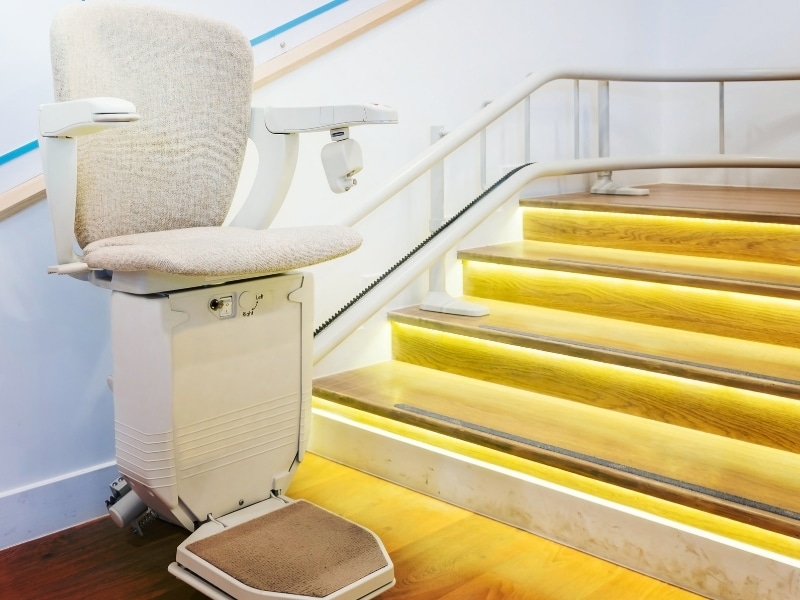
Living with a disability presents unique challenges, and when it comes to housing, those challenges can become even more pronounced. Tenants with disabilities often face a range of difficulties that can impact their daily lives, from finding suitable accommodation to dealing with accessibility issues in their homes. This article will explore the common challenges faced by tenants with disabilities and how they can navigate these obstacles effectively.
What challenges do tenants with disabilities face in housing?
Tenants with disabilities face a wide range of challenges when seeking appropriate housing. These challenges can range from physical barriers to social discrimination, and each one impacts the tenant’s ability to find safe and comfortable accommodation.
- Physical accessibility issues: Properties that lack ramps, wide doorways, or adequate bathroom facilities can significantly hinder tenants who require mobility aids or use wheelchairs.
- Lack of supportive services: Many tenants with disabilities need ongoing support with daily living activities, such as personal care, home modifications, or assistance with grocery shopping. When properties don’t offer these services, it becomes harder for individuals to live independently.
- Discrimination: Sadly, tenants with disabilities often face discrimination when landlords or property managers perceive them as a “risk” or may be unwilling to make the necessary adjustments to accommodate their needs.
Navigating these barriers can often feel daunting, but knowing where to seek support can make a significant difference.
How does accessibility impact daily living?
Accessibility is a fundamental aspect of daily living for tenants with disabilities. Without the proper adjustments or accessible spaces, everyday tasks can become extremely difficult, if not impossible. Here are some accessibility challenges that may affect tenants:
- Wheelchair accessibility: Door widths, entryways, and elevator availability must be designed to accommodate mobility aids such as wheelchairs or walkers.
- Bathroom modifications: Accessible bathrooms with features such as grab bars, wider doorways, and a shower with a seat can significantly enhance a tenant’s ability to live independently.
- Kitchen adaptations: For tenants who need specific modifications, accessible countertops, lower sinks, and the ability to reach cooking equipment can be essential.
The absence of these features can limit a tenant’s independence, making it harder to perform daily tasks without additional help.
Why is it difficult for tenants with disabilities to find suitable accommodation?
Finding the right place to live can be a challenge for anyone. Still, tenants with disabilities face unique hurdles in the search for suitable housing. Some of these challenges include:
- Limited availability of accessible housing: Housing that meets the specific needs of tenants with disabilities is limited. Many properties are not designed with accessibility in mind.
- High costs for modifications: Changes may be necessary if a property doesn’t meet a tenant’s needs. However, these modifications can come with a hefty price tag, and tenants may struggle to afford them.
- Landlord reluctance: Some landlords may hesitate to make necessary modifications or may not understand their legal obligations to accommodate tenants with disabilities. This reluctance can make it difficult for tenants to secure suitable homes.

The combination of these factors can leave tenants feeling frustrated and excluded from the housing market.
How can renters with disabilities navigate lease agreements?
Lease agreements are another area where tenants with disabilities can encounter difficulties. The standard lease terms may not always consider the specific needs of individuals with disabilities. Some common hurdles include:
- No clause for disability modifications: Some lease agreements do not address changes a tenant may need to make the property more accessible. Knowing whether the lease allows for changes like adding ramps or widening doorways is essential.
- Unclear terms on assistance animals: Tenants with disabilities who rely on assistance animals may find that lease agreements do not explicitly allow these animals on the property.
- Complicated communication: Communication with landlords can be difficult for individuals with hearing or speech impairments, primarily if they do not provide accessible formats for correspondence.
Tenants with disabilities should seek guidance on understanding the lease terms and advocate for any necessary changes to ensure appropriate accommodation.
What financial challenges do tenants with disabilities encounter?
Renting a property in Sydney can be expensive, and tenants with disabilities often face additional financial challenges. These can include:
- Higher Rent Costs: Accessible properties rent more due to their modifications or prime locations.
- Costs for modifications: If a tenant requires specific changes to a rental property, such as a bathroom remodel or kitchen adjustments, the landlord may not cover these costs, which the tenant must bear.
- Limited access to financial support: While tenants with disabilities may qualify for NDIS funding or other assistance programs, accessing this financial support is often complicated by bureaucratic hurdles.
These challenges make it critical for tenants to have access to the right financial advice and support when navigating the rental market.
How can tenants with disabilities access tenancy assistance?
Support services like tenancy assistance can make a significant difference in helping tenants with disabilities navigate the housing process. These services include:
- Assistance with finding accessible housing: Support coordinators can help tenants with disabilities identify suitable properties that meet their needs.
- Help with modifications and funding: Tenancy assistance may include helping tenants apply for grants or funding to modify their rental properties.
- Advocacy and legal support: Tenancy assistance services can advocate on behalf of tenants to ensure that their rights are protected and landlords comply with the necessary accommodations for tenants with disabilities.

By accessing these support services, tenants can increase their chances of securing a suitable, accessible home.
What legal rights protect tenants with disabilities in Sydney?
In Sydney, tenants with disabilities are protected by various laws that ensure equal access to housing opportunities. These include:
- The disability discrimination act: This federal law protects individuals with disabilities from discrimination in housing, ensuring that landlords make reasonable adjustments to meet their needs.
- State-based tenancy laws: In New South Wales, tenants with disabilities are also protected by state laws that require landlords to provide accessible housing or modify properties to accommodate tenants with disabilities.
- Human rights protections: Tenants with disabilities have the right to live in an environment free from discrimination, which includes protection against discriminatory rental practices.
Understanding these legal protections is crucial for tenants to ensure they receive fair treatment in the rental market.
How can support services help tenants with disabilities overcome challenges?
Support services can play a vital role in helping tenants with disabilities overcome the challenges of securing and maintaining suitable accommodation. These services offer:
- Navigating legal and financial obstacles: Support services help tenants understand their rights and secure the funding or modifications they need to make a property suitable for their needs.
- Advocacy and negotiation: Expert accommodation and tenancy support services can help tenants negotiate with landlords for necessary adjustments, ensuring appropriate accommodation.
- Assistance with daily living needs: From personal care to social participation, support services can assist with day-to-day living, making it easier for tenants to live independently.
Using these services, tenants can overcome barriers and ensure their housing is safe, accessible, and supportive.
Overcoming challenges together
Navigating the housing market as a tenant with a disability comes with its own set of challenges. However, these challenges can be overcome with the proper support and understanding. Whether you’re dealing with accessibility issues, financial barriers, or legal concerns, resources can assist you.
Suppose you’re facing challenges with your tenancy or need assistance accessing suitable housing. In that case, Choice Care Australia is here to help. As a registered NDIS service provider in Sydney, we offer a wide range of services designed to support individuals with disabilities. From assistance with daily living tasks to finding suitable accommodation, we are committed to helping you overcome any challenge. Contact Choice Care Australia today to learn how we can assist you.
Frequently Asked Questions
What are some examples of “reasonable adjustments” landlords might need to make? This could include installing grab bars, widening doorways, or providing ramps.
How can tenants with disabilities find accessible housing options?
Online searches, disability-specific housing websites, and working with support coordinators can help.
What should a tenant do if a landlord refuses to make necessary modifications?
They can seek legal advice and contact relevant housing authorities or advocacy groups.
How can tenants with disabilities manage the financial burden of renting?
Exploring NDIS funding and other financial assistance programs can help.
What makes finding suitable accommodation so difficult for renters with disabilities? Key factors include limited availability of accessible housing, high modification costs, and landlord reluctance.
How can a tenant with a disability ensure effective communication with their landlord? They can request communication in their preferred format (e.g., email, large print) and use relay services.
What role do support coordinators play in helping tenants with disabilities?
They can help with housing searches, applications, and connecting to necessary services.
Can landlords charge tenants extra for making disability-related modifications?
Generally, no. Landlords are usually responsible for reasonable modifications.
What is the importance of having a clear and comprehensive lease agreement?
It protects the rights of both the tenant and the landlord and outlines responsibilities.
What are some common misconceptions landlords might have about tenants with disabilities?
Some may wrongly assume tenants with disabilities are less responsible or require excessive maintenance.


